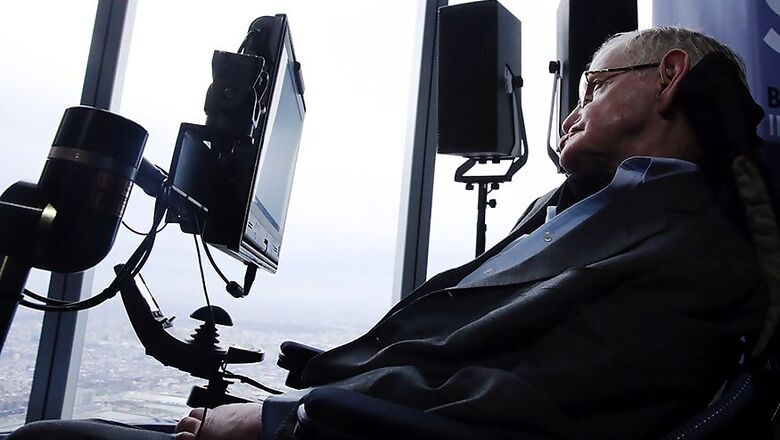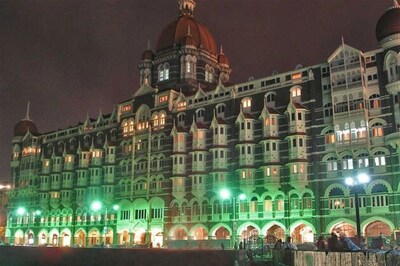
views
Stephen Hawking may have left behind clues to detect other universes in the cosmos besides our own in a final research paper submitted just weeks before his death earlier this week, a media report said today.
One of the world's best-known scientists, who died peacefully at his home in Cambridge aged 76 on March 14, set out the maths needed for a space probe to find experimental evidence for the existence of a "multiverse". The paper sets out to prove the idea that our cosmos is only one of many universes, reports 'The Sunday Times'.
"This was Stephen: to boldly go where Star Trek fears to tread. He has often been nominated for the Nobel and should have won it. Now he never can," Thomas Hertog, professor of theoretical physics at KU Leuven University in Belgium who co-authored the paper, told the newspaper.
The paper, entitled 'A Smooth Exit from Eternal Inflation', is now under review by a leading journal. It confronts an issue that had bothered the late British theoretical physicist since the 1983 "no-boundary" theory he devised with James Hartle, describing how the universe exploded into existence with the Big Bang. Under the theory, it instantaneously expanded from a tiny point into the prototype of the universe we see today a process known as inflation.
Also read: Samsung Galaxy S9, S9+ Available For a Down Payment of Rs 9,900 on Airtel Online Store
The problem for Hawking was that the theory also predicted that "our" Big Bang was accompanied by an infinite number of others, each producing a separate universe. This was a mathematical paradox that made it impossible to test the idea experimentally.
"We wanted to transform the idea of a multiverse into a testable scientific framework," explains Hertog. This final paper by Hawking also predicts that the ultimate fate of our universe is simply to fade into blackness as all its stars run out of energy.
Hawking, the author of 'A Brief History of Time', leaves behind two former wives, Jane and Elaine, and three children and is mourned by thousands of colleagues, collaborators and friends. The scientist's life is also set to be commemorated with a memorial service at Westminster Abbey in London, an accolade reserved for exceptional individuals. Cambridge University is also deliberating on a permanent memorial to their famous Fellow.
Watch: ZTE Axon M First Look at MWC 2018
&mnbsp;
















Comments
0 comment